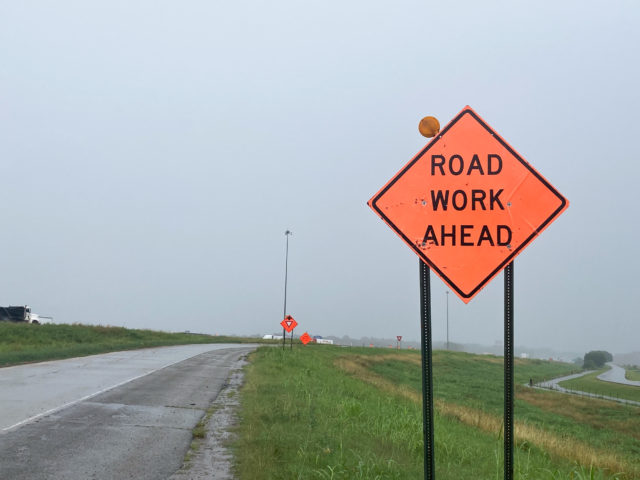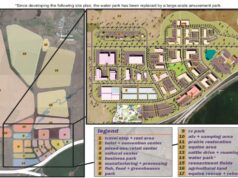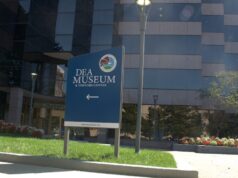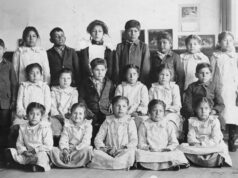
WASHINGTON — Oklahoma’s congressional delegation requested earmarks for highway projects totaling $55 million, which will be part of a massive transportation bill headed to the House floor for an anticipated vote today.
Three of Oklahoma’s U.S. representatives, Tom Cole, Stephanie Bice and Frank Lucas, originally had been seeking nearly $190 million to fund 13 highway projects in their districts. Nine projects totaling $51.75 million were approved. The three declined to comment on their earmark requests.
This story was reported by Gaylord News, a Washington reporting project of the Gaylord College of Journalism and Mass Communication at the University of Oklahoma.
Rep. Peter DeFazio (D-OR4), chairman of the House Committee on Transportation and Infrastructure, wants to use the legislation to help further President Joe Biden’s goals.
“The INVEST in America Act puts a core piece of President Biden’s American Jobs Plan into legislative text — seizing this once-in-a-generation opportunity to move our transportation planning out of the 1950s and toward our clean energy future,” DeFazio said.
The INVEST in America Act, totaling $546 billion over five years, is a surface transportation authorization bill introduced by Democrats that would appropriate $343 billion for roads and bridges, $109 billion for transit and $109 billion for passenger rail and freight.
In committee, all but two of the Republicans who chose to vote favored advancing the bill to the House floor. All of the Democrats who voted were in favor of the legislation. No members of the Oklahoma delegation serve on the Transportation and Infrastructure Committee.
If that trend continues on the floor, there is a strong chance some House Republicans may vote against the bill that includes the community projects they introduced. DeFazio has said he would not condition “member designated projects” on the member supporting the bill.
Bice, Cole and Lucas declined to comment on how they would vote on the bill.
Cole could get portion of I-35 request
Members who submitted projects were allotted up to $15 to $20 million for projects. Of the approved earmarks for the bill, only Lucas received funding for all of his projects at the requested amount of each.
Two of the three projects Bice asked to be included are in the bill, both of which feature the specific amount of requested funding. Cole received funding for two of the five projects he submitted, and only one of the two would be funded at the full requested amount.
Cole requested $72 million, the largest of the Oklahoma delegation’s requests, for the I-35 widening project in Love County, which includes I-35 from the Red River to the Lake Murray exit in Ardmore.
The congressman only received inclusion of $17.12 million for I-35 widening despite the $72 million he requested.
The Oklahoma Department of Transportation is partnering with the Texas Department of Transportation on widening the corridor between the states.
“Our understanding is that the earmark funding can be put toward any one of those projects,” a spokeswoman for the Oklahoma Department of Transportation said.
The area includes Winstar World Casino, located on the Chickasaw Nation reservation.
Rep. Kevin Hern and Rep. Markwayne Mullin did not submit projects for the bill. Hern has been outspoken about his opposition to earmarks in the past and stated that he wanted to read the transportation bill in its entirety before deciding how he wanted to vote.
Republicans have objected to this bill because they believe it will be used to advance the Biden agenda.
“Despite a narrower margin of power and the president’s call for bipartisanship, the (Democratic House Majority) never seriously considered incorporating Republican priorities and reaching a compromise,” said U.S. Rep. Sam Graves (R-MO6), ranking Republican on the committee. “So we are left with another bill that lets lengthy road and bridge project delays to continue eating up precious resources, handcuffs our state and local partners, leaves rural communities behind and prioritizes the Green New Deal to an extent that cripples the real infrastructure improvements communities across the country need.”
The legislation differs from an appropriations bill now making its way through the House committee that contains more than $95 million in district projects proposed by Bice, Cole and Lucas.
The purpose of this proposal is to replace the Surface Transportation Bill, a five-year project plan signed into law back in 2015 by President Barack Obama and extended for one year owing to the COVID-19 pandemic. The 2015 law will have to be extended again if Congress cannot come up with a new bill for Biden to sign.
Representatives’ approved projects and funds
Bice’s included Oklahoma highway projects:
- Edmond — Bridges on I-35 at interchanges between Memorial Road and 2nd Street, $10 million.
- Oklahoma City — I-35/I-240 Interchange, $10 million.
Cole’s included Oklahoma highway projects:
- Love County — I-35 widening in Love County, $17.12 million.
- Midwest City — S.E. 29th Street bridge replacement and repair project, $2.88 million.
Lucas’ included Oklahoma highway projects:
- Boise City — US-287 road improvements from Boise City north to Colorado (Portsto-Plains Corridor), $3.25 million.
- Clinton — I-40 and Exit 65 road improvements in Clinton and Custer County, $3.25 million.
- Kingfisher — SH-33 from the Blaine County line east to SH-74, $3.25 million.
- Watonga — US-270 road improvements between Watonga and Seiling, $3.25 million.
- Durham — SH-30 from SH-33, north two miles in Roger Mills County, $2 million.
























